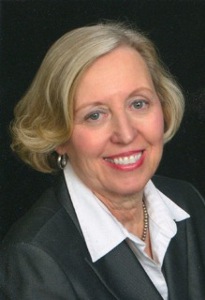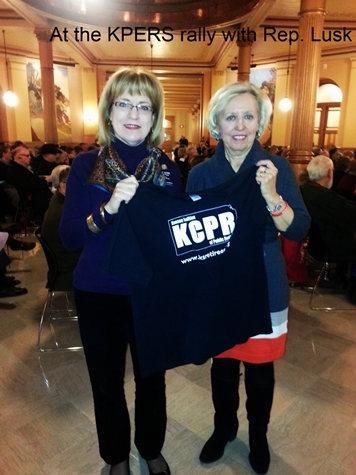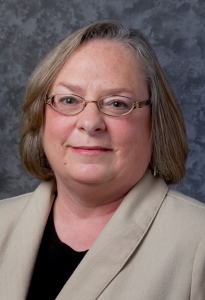
Legislative newsletter from Sen. Pat Pettey, D-6th Dist.
Feb. 9
In this issue:
• Last week at the Capitol
• Brownback cuts education
• House passes budget adjustment, Senate concurs
• Equalization debate
• Bundling bills
• Filling municipal office vacancies
• Voting college students
• Newsworthy notes
Last week at the Capitol
We had an eventful week at the Capitol with two celebrations of diversity, action on the budget adjustment bill, and the announcement of allotments by the governor as well as a number of hearings on bills in committees.
The first Wednesday of February is Native American Day at the Capitol, and members of Kansas tribes visit the Legislature. February is also Black History Month. Special displays are on exhibition, including one on Buffalo Soldiers, in the Visitor’s Center of the Capitol. A ceremony was held Thursday to officially open the exhibits.
Action on the Senate floor included confirming a host of appointments, including three appointees to the Kansas Board of Regents and the Secretary of Aging and Disability Services. The appointees received unanimous approval. The Senate also took action Thursday on the budget adjustment bill. It passed 24-13.
To track bills, go to www.kslegislature.org and click on the “Bills and Laws” link. You are also welcome to testify before a committee on any issue important to you. A written copy of your testimony is required at least 24 hours prior to the committee hearing.
If you have any questions about testifying or about bills in general, feel free to contact my office at 785-296-7375 or stop by my legislative office, located in 125-E of the Topeka Statehouse.
Daily calendars, committee and district information, and full text and summaries of bills are all available online at www.kslegislature.org. To hear legislative proceedings, just click on “Listen in Live.”
Brownback cuts education
If anyone was still holding out hope that the governor would not support reducing the state budget on the backs of our Kansas children, last Thursday proved our children’s future is not a priority. Our Wyandotte County schools are losing nearly $2 million out of their 2015 budget.
The governor announced $44.5 million in allotments effective this fiscal year. Gov. Brownback claims a drop in sales tax receipts in January forced him to make the 2 percent across-the-board cut to higher education and the 1.5 percent across-the-board cut to K-12 education. The reality is, of the $47 million shortfall reported in January, $35 million was from lower than expected income tax receipts.
Initial figures released by the Kansas Department of Education indicate all districts will be impacted. You can see how this affects your district at
http://patpettey.us5.list-manage.com/track/click?u=e70d9e4f69b9b3ee26fd11378&id=bddca20e5a&e=c792e726cf
An explanation of the columns for the report can be found at http://patpettey.us5.list-manage.com/track/click?u=e70d9e4f69b9b3ee26fd11378&id=d53d2fc6cd&e=c792e726cf
In short, Gov. Brownback is balancing his budget on the backs of K-12 students and college students for the sake of his failed economic experiment.
House passes budget adjustment, Senate concurs
As you may recall, last week the Senate passed a simple measure related to the budget (Senate Bill 4). This week, the House stripped out the contents of the bill and inserted the language budget adjustments to make up for the $280 million shortfall. The House passed House Substitute for Senate Bill 4 Wednesday on a vote of 88-34.
Since the bill was placed inside a bill that the Senate had already passed, we were unable to have much of a debate on it or offer amendments. Keep in mind that the Senate Committee on Ways and Means also never heard testimony on the bill. This is not how the process is intended to work and leads to poor policy making.
The Senate did concur with the bill on a vote of 24-13. I did not vote for it. Here’s why:
• The plan raids the highway fund by nearly half a billion dollars in the current fiscal year alone. The current budget proposal for FY16 and FY17 includes raiding $725 million. So, over the next three years, the Legislature will sweep more than $1 billion from the highway fund, which jeopardizes a proven job-creating program and safe roads.
• The bill also sweeps $12 million from the KEY Fund, which funds early childhood education programs. This is less than what the governor initially proposed. He suggested taking the full, anticipated amount of $14.5 million despite vetoing a $5 million transfer back in May saying the money needed to stay in the fund for its intended purposes.
• Another adjustment includes a reduction to the employer contribution rate from 11.27 percent to 8.65 percent. This reneges on a bipartisan compromise passed in 2012 – and was touted on the campaign trail – that reformed the public employee pension system. Employees will continue to pay their fair share to ensure the program is fully funded, while the state will not.
• Even with this bill, the state still faces $800,000 below zero with five months to go in the fiscal year.
Equalization debate
There is no good reason why this bill did not go to Senate Education.
The Senate Committee on Ways and Means held a hearing Tuesday on Senate Bill 71, which would change the method of computing supplemental general state aid and cut $39 million from our state’s poorest schools.
The governor made reference to this bill in his release Thursday when he announced the allotments, saying that the Legislature could restore his cuts of $28.3 million to public education. The governor is proposing significant cuts to public schools — something he promised that he would not do in his reelection campaign.
Senate Democratic Leader Anthony Hensley testified in opposition to the bill along with many school superintendents and concerned parents. The bill only had one proponent testify. This legislation is another attempt to neglect our constitutional obligation to provide for suitable financing of public schools. I am wholly opposed to this bill.
Bundling bills
As you may recall from last week, the House approved a change in the Joint Rules that limits the number of bills that can be bundled together for a final vote to just two. This week the Senate agreed that there needs to be a restriction on the number of bills that can be bundled together, but argued that two was too few. In the past, it has been a strategy to bundle as many as a dozen bills in one report in order to pass bills that may otherwise not if they stood alone.
The rule change has now been sent to conference where members of each chamber’s Rule Committee will negotiate an appropriate number of bills.
Filling municipal office vacancies
The Unified Government has a charter ordinance that directs how they fill vacant positions. As a former commissioner with Unified Government, I support local control to make these decisions. I do not support this legislation.
The Senate Committee on Ethics and Elections held a hearing Wednesday on a bill introduced by Sen. David Haley (D-4th Dist.). The purpose of Senate Bill 10 is to ensure proper representation of constituents by avoiding local governing bodies from having vacant seats.
The bill would require an appointment of a replacement member by a majority vote of the remaining members of a municipal governing body within 30 days of a vacancy. Or, the passage of a resolution by the governing body for a special election to be held within 45 days of the passage of the resolution.
Voting college students
The Senate Committee on Ethics and Elections held a hearing Thursday on a bill introduced by Sen. Oletha Faust-Goudeau (D-Wichita). Senate Bill 41 allows Kansas students attending colleges or universities outside of the state to be eligible to apply for voter registration and vote using an absentee ballot by fax, e-mail, or other electronic method.
Newsworthy notes
• Capitol visitors
I enjoyed a visit from former teaching colleagues, Jane Bock and Gail Linthicum. They joined 200 other retirees from across the state for the KPERS rally held at the Capitol last Wednesday.
• Wearing red
I joined other women at the Capitol in bringing awareness to women’s heart disease by wearing the color red last Thursday. Cardiovascular diseases cause one in three women’s deaths each year, killing approximately one woman every minute.
• Kansas college and career ready
Today’s Kansas classrooms focus on the needs of the whole child. Academic achievement, while important, is not the sole predictor of student success. In Kansas, we believe being college and career ready means an individual has the academic preparation, the cognitive preparation, technical skills and employability skills to be successful in post-secondary education, in the attainment of an industry recognized certification or in the workforce, without the need for remediation.


